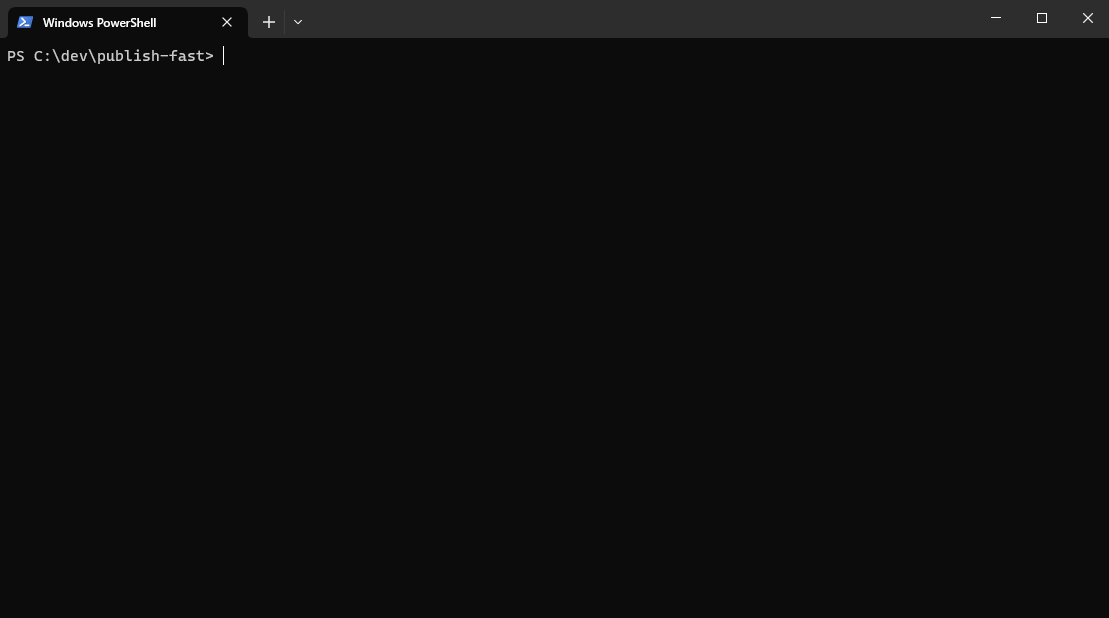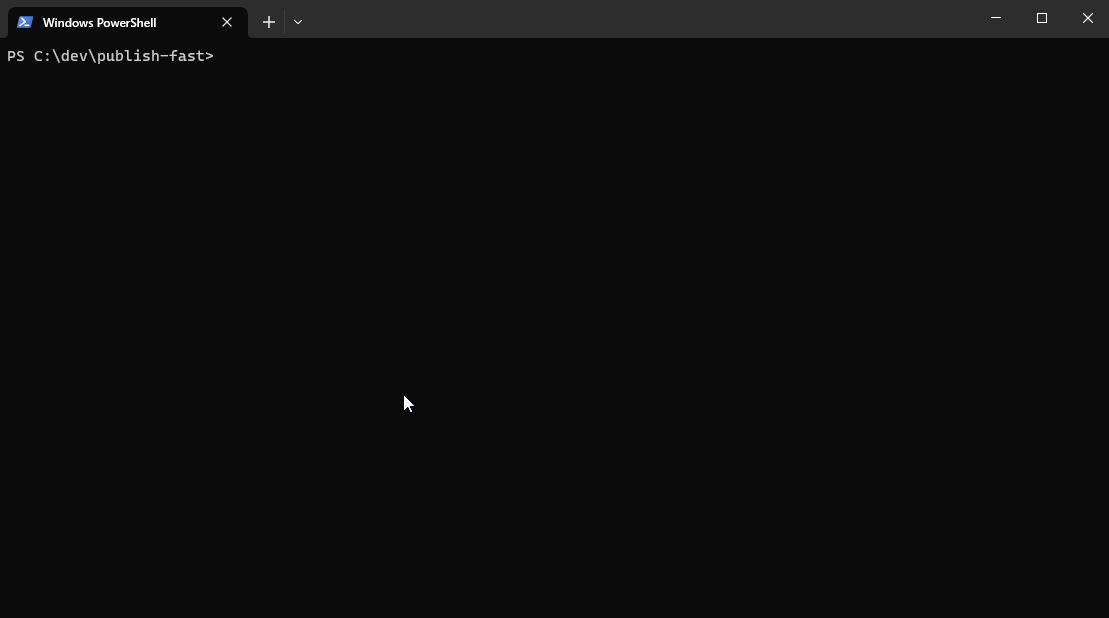Publish Fast
A straight forward tool for streamlining the publishing of NPM packages without a lot of setup and work
This project is inspired by np, and pretty much does the same thing, except that publish-fast is suitable to run in CI, directly creates a github release from a local template instead of just drafting one, supports uploading release assets, automatically updates a changelog file and supports config files. It thus does more stuff automatically without much manual effort, and is more suitable to run in automated workflows.
Features
- Automatically bumps version, creates a commit, creates a tag, and pushes it to the remote
- A list of scripts to be run before the release can be provided (e.g. "lint,test")
- Supports npm, yarn and pnpm
- Automatically checks that the user is on the correct branch before releasing
- Automatically checks that the working directory is clean before releasing
- Loads release notes from a local file, and clears that file after publishing to an empty file or a predefined template
- Can update a local changelog file with release notes
- Can create a github release with release notes
- Can upload assets to the github release defined by a glob option
- Dry Run mode
- Almost all steps can be skipped
- Options can be passed in through a
.publishrc.jsonfile or thepublishproperty in apackage.jsonfile
Caveats
- The tool is currently opinionated about using github, and doesn't support other git hosting services
- There is no support for reading changelog data from commit messages. The intended workflow is to collect changes in a markdown file which is used for creating the changelog and github release, or not use a changelog at all.
Release Notes Workflow
This tool supports to automatically read release notes to be used in the changelog and github release.
Create a file in your repo, e.g. release-notes.md. There, every time you add new changes to your project,
document the changes you made in that file.
When running publish-fast to create a new release, use the option --release-notes-source release-notes.md.
Remember that you can create a script alias in your package.json for the release script, so you don't need to
pass that every time. The release notes will be read from that file, and then the file will be cleared to an empty
file.
You can also define a template to which the release notes will be reset after the release instead of clearing it.
Use the option --release-notes-template release-notes-template.md to do that.
Github Token
If uploading a github release is enabled, the tool needs a valid Github Auth token. If you run the tool on your
dev machine, the easiest way is to install the gh cli and run gh auth login to
create a token. Then, the tool will automatically use that token.
If you do not want to install the Github CLI, you can pass the token via the --github-token option or through the
GITHUB_TOKEN environment variable. Alternatively, the tool will interactively ask for the token when run.
How to use
You can install publish-fast as dependency to your project,
npm install publish-fast
and then add a script to your package.json:
"scripts": {
"release": "publish-fast patch"
}
Then you can run yarn release or npm run release to publish a new version.
You can also install it globally via
npm install -g publish-fast
or directly use via
npx publish-fast
Usage: Usage: publish-fast [options] [bump]
Options:
-V, --version output the version number
--verbose verbose output (default: false)
--dry-run dry run (default: false)
--package-manager <package-manager> package manager, detected from lock file by default (default: "auto")
--pre-scripts <pre-scripts> pre scripts seperated by commas (e.g. lint,test) (default: "lint,test")
--commit-message <commit-message> new version commit message (default: "chore(release): {version}")
--commit-author <commit-author> new version commit author
--commit-email <commit-email> new version commit email
--branch <branch> release branch, for verification (default: "main")
--release-notes-source <release-notes-source> path to release notes source markdown file. Leave empty to use empty release notes.
--release-notes-template <release-notes-template> path to release notes template markdown file. Leave empty to not recreate the file after publishing.
--changelog <changelog> path to changelog file. Leave empty to not update changelog. Will automatically be skipped if file doesn't exist. (default: "CHANGELOG.md")
--github-token <github-token> github token for creating github release. If not provided, CLI will attempt to load through gh CLI, or alternatively interactively ask.
--draft-release create github release as draft (default: false)
--npm-tag <npm-tag> npm tag to publish to (default: "latest")
--npm-access <npm-access> npm access level
--otp <npm-otp> npm otp code
--release-assets <glob> glob for release assets to upload to the github release
--pipe-stdout pipe stdout of child processes through (default: false)
--no-version-prefix dont prefix the version with "v" (i.e. 1.0.0 instead of v1.0.0) in tag and github release name
--yes skip verify prompt (default: false)
--skip-install skip installing dependencies (default: false)
--skip-github-release skip creating github release (default: false)
--skip-publish skip publishing to npm (default: false)
--skip-bump skip bumping version (default: false)
--skip-push skip pushing changes (default: false)
--skip-commit skip committing changes (default: false)
-h, --help display help for command
You can also pass in options through a .publishrc.json file or the publish property in a package.json file.
Note that all options, which are snake-case in the CLI, are camelCase in the config file, i.e. the --release-notes-source
option becomes releaseNotesSource in the config file.
Dry Run Demo
How to develop
-
yarnto install dependencies -
yarn startto run in dev mode -
yarn testto run tests -
yarn lintto test and fix linter errors
To publish a new version, run yarn release.


